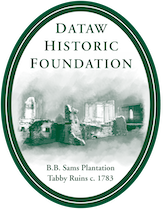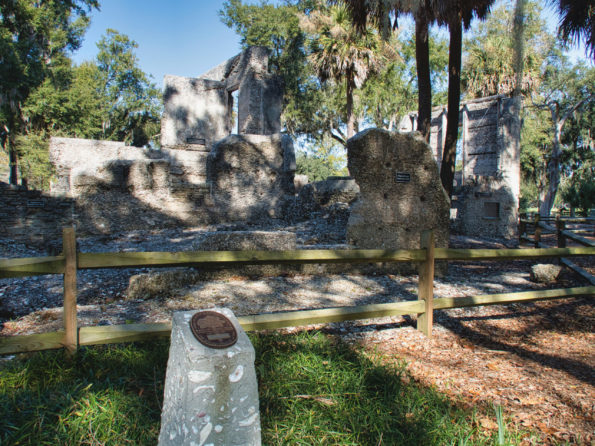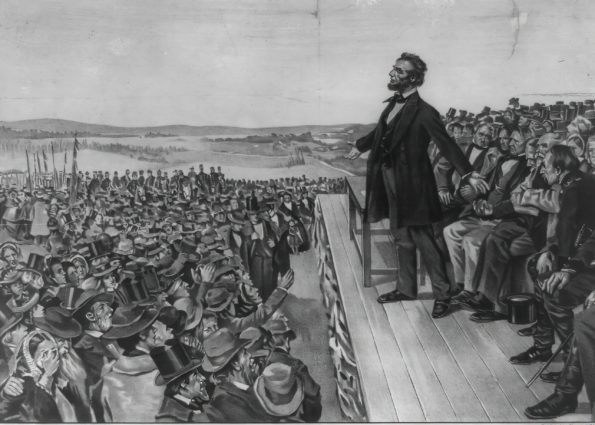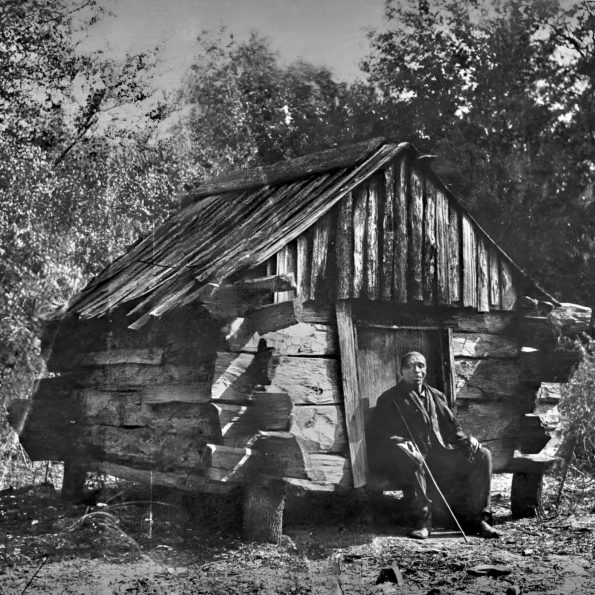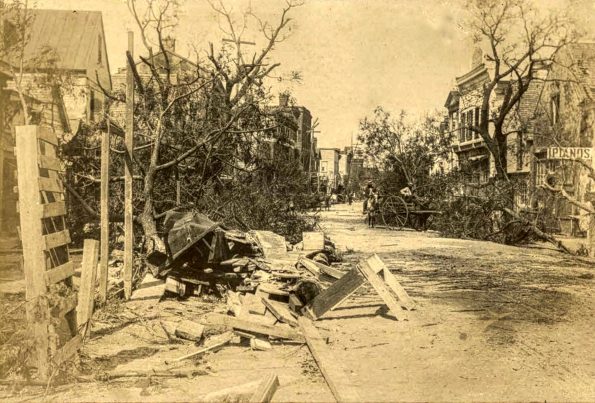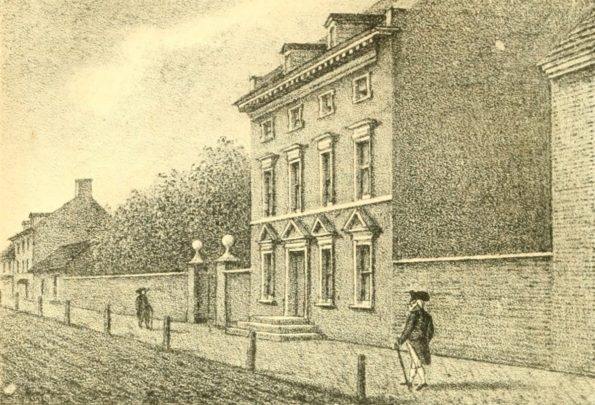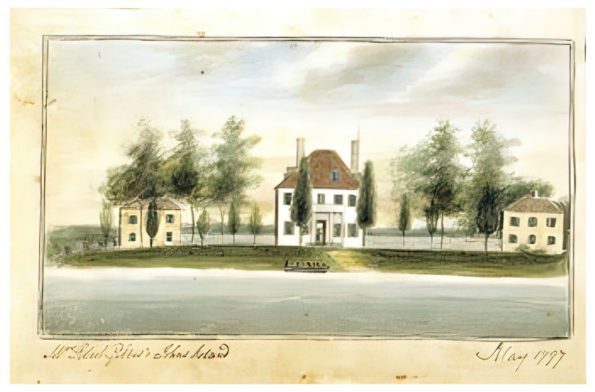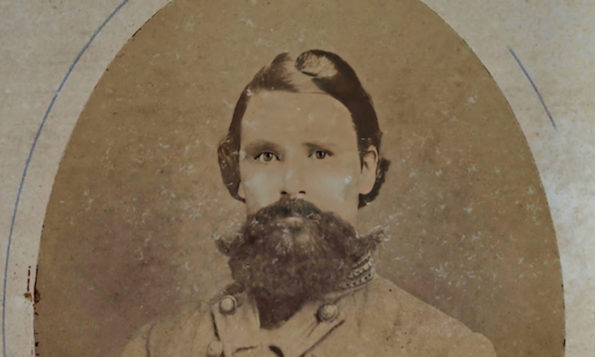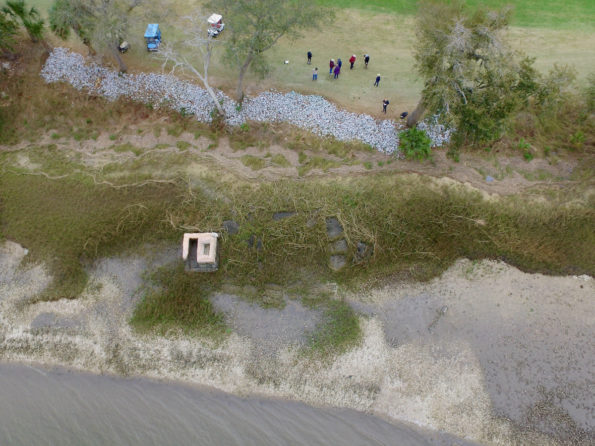BB Sams and his Tripartite Residence (built after 1760 – burned about 1880)
Recently, tour requests have begun to pick up. So I thought it would be a good time to introduce you to the winter home of Dr. BB Sams (1787-1855) and his family. Their tripartite house is one of several tabby structures in the Sams Plantation Complex Tabby Ruins, accepted on the National Register of Historic Places on March 4, 2011. In the antebellum period, and the sea islands of Beaufort in particular, nearly all planters had a summer home and winter home. The summer home is where they lived in the hot months to get away from their plantation(s) and the diseases associated with heat, humidity, and bugs. In summer, they went to their homes in Beaufort or St Helenaville. Summer was also the prime time of the year for socializing and for children to be tutored. In winter, the planters lived in their plantation homes. So the ruins you see today on Dataw Island are of Dr. BB Sams winter home and yard.
